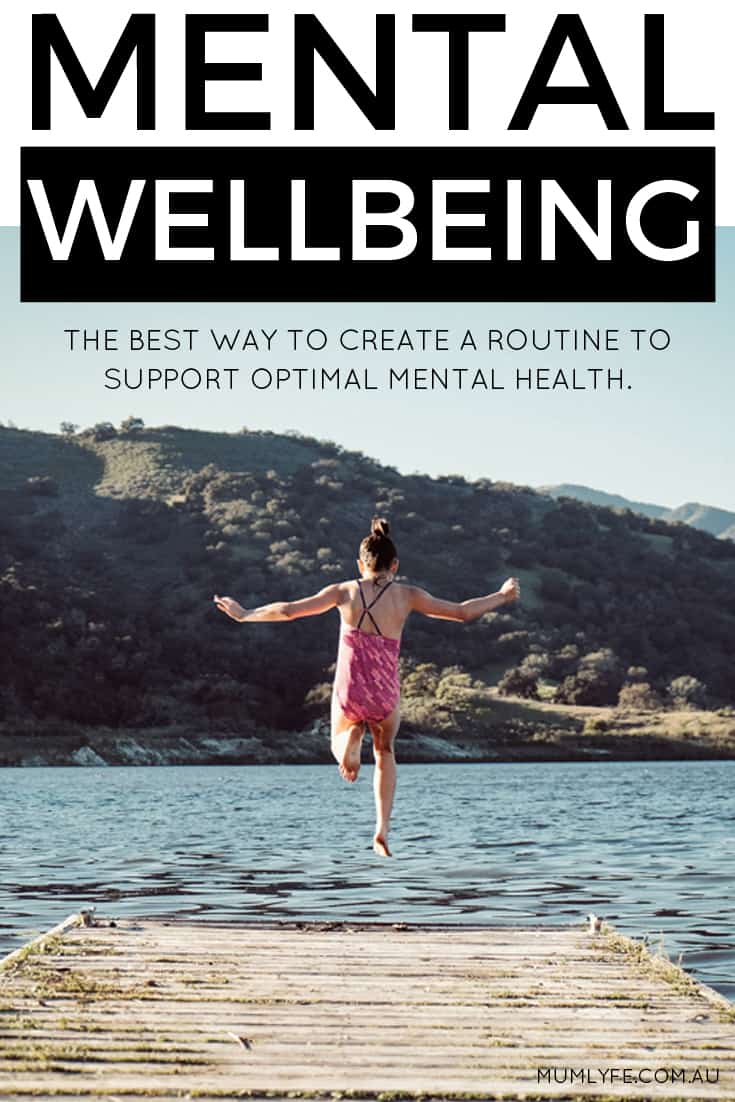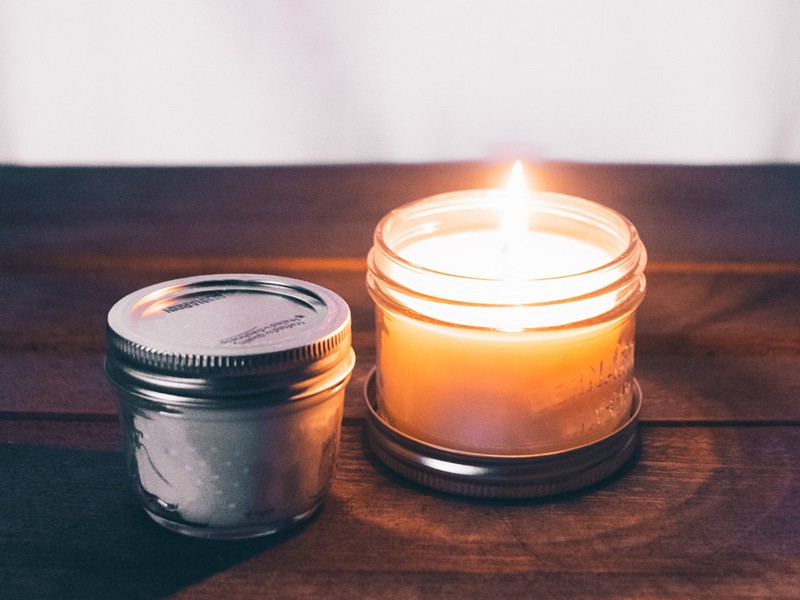It’s World Mental Health Day, an important time to reflect on our own mental wellbeing and advocate for the good mental health of others. It got me thinking about mental health versus mental illness. We talk a lot about our ‘mental health’, but is being mentally healthy the same thing as being free from mental illness?
“Today we often find that the terms ‘mental health’ and ‘mental illness’ are used to describe the same thing when in fact they are not,” says Dr Addie Wootten, clinical psychologist and CEO of Smiling Mind.
Mentally proactive
Mental illness, just like with physical illness, can affect anyone for any number of reasons. Like with physical health, we don’t have to be “ill”, or have a mental illness, in order to feel like we are nowhere near our peak mental performance. In many ways, ‘mental wellbeing’ is what we are really aiming for.
“We need to work at supporting good mental health just like we might think about going to the gym or doing yoga for our physical health,” says Dr Wootten. “It’s important to take a proactive approach to support our mental health.”
RELATED: Why mindfulness for kids is more than just a buzzword
Dr Wootten guides us to the 2014 WHO’s definition of mental health as a good example of what it means to be mentally healthy. “Mental health is defined as a state of well-being in which every individual realizes his or her own potential, can cope with the normal stresses of life, can work productively and fruitfully, and is able to make a contribution to her or his community.”
A mental fitness routine
It’s incredibly important to establish a regular ‘fitness’ routine to look after our mental wellbeing, and to encourage our kids to do the same. There are many ways to create a supportive daily routine, and it will look different for everyone. Mothers hear a lot about ‘self-care’ and a mental wellbeing routine is exactly the kind of thing that will help us take care of ourselves, to help us take care of our families.
Try some of these mental wellbeing strategies out for yourself and introduce them to the kids. You’ll soon find a routine that helps you all feel good and works for your family’s lifestyle. Whatever mental fitness activities you find suit you best, the important thing is that you practise them daily.
1. Practising mindfulness
You can begin a structured meditation routine, or simply commit to being more present in your everyday life.
Mindfulness is all about paying attention to the current moment with curiosity, openness and without judgement,” sas Dr Wootten. “Being mindful can help us to relate to people, improve our listening, be present, compassionate, empathic and respectful of different cultures and diversity – all of which helps to improve our mental health.”
The Smiling Mind app is, of course, a great way to get started. It’s highly rated by leading mental health advocates like Beyond Blue and Kids Helpline. The kids and I have all used Smiling Mind over many years and I highly rate it for calming down, becoming more reflective, and slowing down a busy mind. Not bad coming from someone who is basically not wired at all for mindfulness!
MORE ON THIS: Turns out mindfulness requires, ah, being mindful
2. Developing self-compassion
I would consider myself to be mentally very healthy and a lot of it is due to a simple mantra: I treat myself the way I treat others. That is to say, I try to be kind, thoughtful and forgiving. It took a long time to shut down my ‘inner bitch’, as nineties me used to refer to the incessant negative self-talk that ran through my mind. I think I grew tired of constantly getting in my own way.
“Many people are so controlled by their inner critic that they find the idea of self-compassion to be something they don’t deserve,” says Dr Jennice Vilhauer, author of Psychology Today blog Living Forward. Dr Vilhauer highly recommends the book Self-Compassion by Kristin Neff as a way to “train yourself into a more self-loving mindset.”
THIS WILL HELP TOO: 5 ways to be kinder to yourself
This is an especially important one to focus on for our kids. The tween and teen years are not known for their self-compassion! It’s one thing to try to teach our kids to listen to their inner voice, not the voice of their peers. Let’s do what we can to ensure that their inner voice is one of support and compassion.
3. Staying grateful
Gratitude can improve our happiness levels by training us to focus on the positive. I’ve kept a gratitude journal for more than a decade. I aim to write down three things I’m grateful for each day, every night before I go to sleep.
I started the practice just after having the kids. I’m a hopeless insomniac (see below) and this was exacerbated by the night antics of newborns and toddlers. I read somewhere that practising gratitude before you go to sleep can help calm the mind. Sadly, my crazy mind was not calmed, but I did start to feel really great about my life and more hopeful about the future, so that’s a big win.
My crazy mind was not calmed, but I did start to feel really great about my life and more hopeful about the future, so that’s a big win.
4. Getting enough sleep
For true mental wellbeing, we need to give our minds the opportunity to fully rest. Many of us are perpetually sleep deprived, which has a knock-on effect for mental health.
“Proper sleep plays a large role in maintaining health, promoting learning, performing at top proficiency, and sustaining emotional well-being,” says Dr Lawrence Epstein, author of The Harvard Medical School Guide to a Good Night’s Sleep. “Sleep problems affect virtually every aspect of day-to-day living, such as your mood, mental alertness, work performance, and energy level.”
If, like me, you’re not a great sleeper, it might be time to seek the advice of your health care professional. Our mental wellbeing depends on sorting this out!
5. Surrounding ourselves with nature
Being in nature should be a daily practise for all of us. Studies have found that spending time outdoors can reduce stress, anxiety and depression. It’s even its own psychological field called ecotherapy.
You don’t have to do anything formal, just hanging out in a park, the bush, the beach or even your backyard can have great mental wellbeing benefits. We are innately programmed to want to care for and connect with nature (the instinct is known as biophilia). Being outdoors helps us practise other mental wellbeing routines such as mindfulness, gratitude and may even improve our sleep.
6. Being with others
Feeling like you belong to a community is so important for mental wellbeing. “Feeling valued and comfortable socially can prevent and reduce feelings of isolation, anxiety, depression and more,” says the Australian Government Head to Health website.
Sometimes we need to push ourselves to get there, but we always feel better when we do. There are some great suggestions for connecting on Head to Health. I’m a massive anti-social introvert at the best of times, but I can do social when social is called for. Even I know when it’s time to surround myself with the joy of others.
Some are not so joyful, of course. There are ways to manage the toxic people in our lives and avoiding them as much as possible is highly recommended. Or, perhaps, for every one encounter with a toxic one, we need at least 10 encounters with the friendlies for balance.
However, let’s all remember that often the people we think of as ‘toxic’ are the ones who need us most. Mental illnesses like depression and anxiety reveal themselves in many ways… so remember to check in with those you love to make sure they’re doing okay.
Make a commitment to focus on your mental wellbeing at Mental Health Australia.
If you, or someone you know, are in crisis and urgently need help, contact Lifeline on 13 11 14 or Kids Helpline on 1800 55 1800. If you are in immediate danger, call 000 right now.
Feature image by Erik Dungan; friends Photo by Savannah Dematteo ;candle by Burst; jump by Andre Hunter; sleep by Amy Treasure





